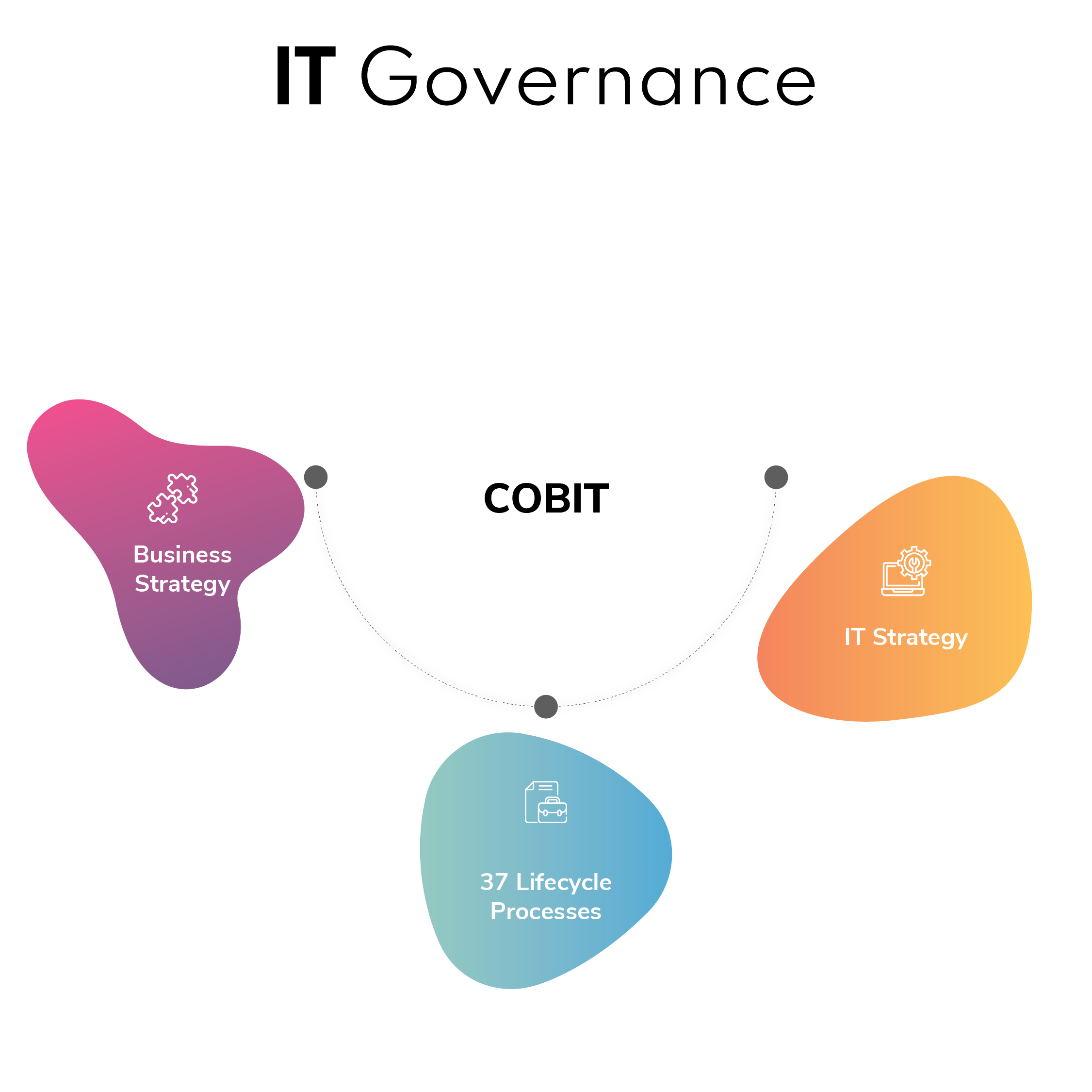
IT Governance Overview
IT governance is the responsibility of executives and the board of directors, and consists of the leadership, organisational structures and processes that ensure that the enterprise’s IT sustains and extends the organization’s strategies and Objectives.

Why COBIT
COBIT 5 implementation in your organisation makes business sense if you have the following internal challenges (not exhaustive)!
Key processes include the followings
Is IT strategy aligning with the business strategy?
Are we measuring IT’s performance?
Can we assure investors and shareholders that a ‘standard of due care’ around mitigating IT risks is being met by the organization?
Do we have a framework to meet regulatory requirements for IT controls in areas such as privacy and financial reporting (e.g., the US Sarbanes-Oxley Act, Basel II) and in specific sectors such as finance, pharmaceutical and healthcare?
Is IT likely to achieve its objectives?
Is IT resilient enough to learn and adapt?
Is IT appropriately recognizing opportunities and acting upon them?
Are we obtaining value from IT investments?
Are we in control of the selection of service providers and the management of service outsourcing and acquisition?
Are we managing the increasingly complex IT-related risks, such as network security?
Are we as an enterprise performing against generally accepted standards and our peers (benchmarking)?

What is our approach to COBIT Implementation?
PHASE IGap Analysis and Strategy Formulation
COBIT gap analysis starts with understanding the business, the business strategy and alignment with IT Strategy.
PHASE IIImplementation of Requirements
This phase involves roles and responsibility setting, designing, training and allocating applicable processes to individuals.
PHASE III Measurement of Controls and Processes
This phase involves measuring the designed process through organisational transactions. Whether it is a change, new project, new application to be developed, we have 30+ transactions that we measure to ensure that COBIT processes are performing as designed
PHASE IVInternal Audit
An independent check is performed that the business strategy, IT strategy and applicable COBIT processes are well implemented and operating to fulfill management objectives.


